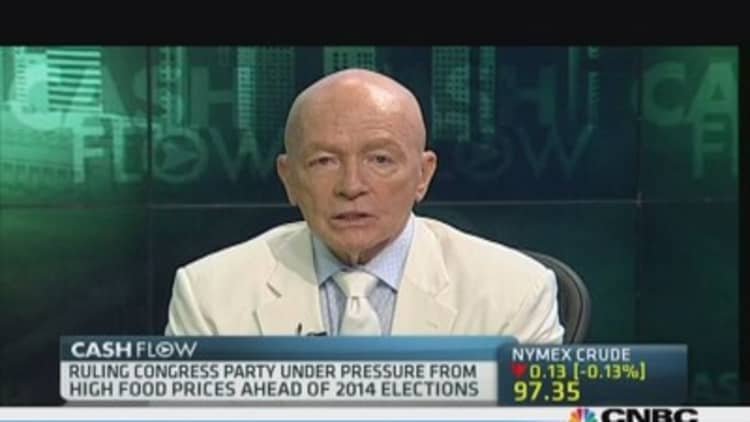
For overseas workers from the Philippines and India, there's no place like home, and that may help insulate their countries from a liquidity pullback once the Federal Reserve begins tapering its asset purchases.
Improved U.S. economic data has put tapering back in the spotlight and analysts are concerned Asian markets and currencies may face a repeat of the May to September market turbulence, which saw funds flow out of emerging markets following the Fed broaching the possibility its asset purchases might soon end.
But remittances may help to insulate markets from any fresh outflows.
(Read more: Is a 'panic taper'the real risk to markets?)
The amount of money overseas workers are sending home is sizable, with the World Bank estimating India will receive $71 billion of remittance in 2013, the highest globally, while the Philippines is likely to receive $26 billion.
"The multiplier effect from these remittances is tremendous because it goes directly to consumers. It's not being intermediated by banks, so you get this money going into the property market; it goes into consumption generally," said Mark Mobius, executive chairman of Templeton Emerging Markets Group. Its parent, Franklin Templeton Investments, has over $817 billion under management.
He notes Filipino workers are especially prevalent overseas. "Their wages are going up overseas, because they're moving into higher positions. It's no longer just maids. Now, they're managers," he told CNBC. "So they are sending billions of dollars back home and they're taking advantage of the global growth generally."
(Read more: Next emerging market sell-off may be time to pounce)
Indeed, Mobius expects the flows can help to finance current account deficits, which were a key concern in the market selloff. India's current account deficit was $5.2 billion in the July to September quarter; the Philippines runs a current account surplus.
To be sure, Mobius is skeptical the actual taper will live up to the hype.

"I don't think the tapering is a significant event," he said. "Even if there's tapering, there's an awful lot of money out there that's sitting in banks waiting to be invested."
He noted the balance sheets of global central banks have expanded by 10 times in the last 10 years. "These central banks were buying assets from the commercial banks; commercial banks were sitting on this money and putting it back into Treasurys instead of lending it out," and now commercial banks are facing increasing pressure to lend more, he said.
(Read more: Stock party's punch bowl isn't running dry: Deutsche Bank)
Mobius also expects that not only has the market already discounted tapering, reform efforts in markets hard-hit by taper tantrums, such as India and Indonesia, will make them more attractive places to invest.
However, he advises positioning to benefit from the taper-inspired regional currency weakness.
"We have to pick those stocks that are going to benefit from the weak currencies. A good example of that is Tata Consultancy. We made a lot of money on that stock in U.S. dollar terms on the back of the weak rupee, because their income is in U.S. dollars and their costs are in rupees," he noted.
In recent market turbulence, the rupee sank to a record low just shy of 70 per dollar in late August from around 54 in May, before recovering to trade around 62 currently.
—By CNBC.Com's Leslie Shaffer; Follow her on Twitter @LeslieShaffer1

